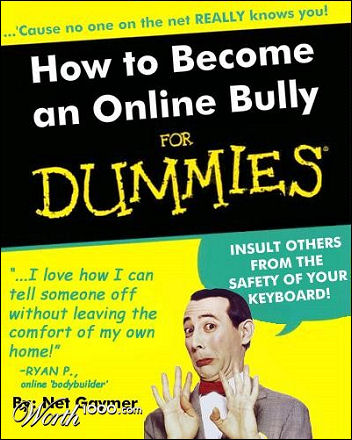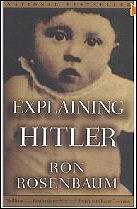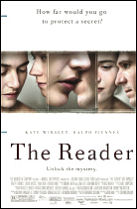Day: February 10, 2009
Outstanding
Has to be the funniest satirical piece I’ve seen this week. (Not the flat-out funniest piece — that would be One-Armed Piccolo Player.) Maybe last week also.
Broodish Boy
Cinetic is asking two bills for an obscure (and pretty much unseen) 1979 short film called Love in the Hamptons on Amazon’s Video on Demand. The hook is that it includes Mickey Rourke‘s first screen performance, when he was 26 or 27. The 25-minute film is said to be a romantic tale in a roundabout way. Here’s a free quickie preview.
Another Penn-Rourke Read
The Envelope‘s Pete Hammond is saying that “history would appear to be on Sean Penn‘s side” in the Best Actor race “since Milk has eight nominations — including best picture — indicating more overall support in the academy than for The Wrestler.
On top of which “Penn is playing a real-life figure and Rourke is not, and recent academy voting trends point to that factor as being very big.” Oh, come on! And yet “trying out an Oscar acceptance speech at any of the precursor award ceremonies can sometimes be a big plus, as in Rourke’s case at the BAFTAs, which has served as a reminder of his own remarkable comeback story. Voters are suckers for that.”
August War Glut?
Coming Soon‘s Ed Douglas reports that during a Hurt Locker presentation at last weekend’s New York ComicCon, someone from the audience yelled out to star Jeremy Renner when the movie was coming out, and he yelled back “late August!”
If this is true (and I do say “if”), Summit has decided to release the only Iraq War film that really works in an audience-popcorn sense — it’s Aliens — in a month that has two other big-time, hot-ticket war films — Paramount and Stephen Sommers‘ G.I. Joe: The Rise of Cobra (8.7.09) and Quentin Tarantino‘s Inglorious Basterds (8.21.09). And If Renner’s late August projection is accurate, he would be speaking of Friday, 8.28, which would make The Hurt Locker third in line that month and facing an audience that will be almost certainly be feeling well-fed if not sated as far as bullets, tanks and helmets are concerned.
Could Summit really be contemplating opening The Hurt Locker this way? I can’t believe any smallish distributor would willingly put its own war film in competition with two other high-profile, sure-to-be-aggressively-marketed war films within a three-week period. Am I missing something? Is jumping into a genre congestion situation a strategy that has worked before, or which makes any sense to anyone?
Summit must at least be considering a Friday, 8.14 opening, which will put them second in line (right after G.I. Joe) but will also probably ensure a sharp fall-off in business when Tarantino’s film comes along a week later. Opening directly against the Tarantino would be death, of course, but if I were Summit I’d want to be far, far away from it.
I wouldn’t dream of coming out this August. All along The Hurt Locker has been a movie that has screamed (a) spring, (b) counter-programming in an especially empty or puerile mid-summer period, or (c) between Labor Day and late November. Summit has been so flaky and indecisive and under-energized about this film all along, and now this. It would be well and good if Renner was passing along bad info. Let’s hope so.
Note: Apologies for the disappearance of this and other stories earlier today.
“And Aaah Waunt Mah Scalps!”
Here, courtesy of a grab posted this morning by New York/”Vulture”, is the official logo for Quentin Tarantino’s absurdist-mannerist-ironic hip cheeseball war dramedy, debuting in Cannes in May and opening in the U.S. on 8.21.

From my Basterds script review that ran on 7.11.08: “It is absolutely the most inauthetic, bullshit-spewing World War II movie that anyone’s ever written. And I love it, love it, love it for that. Every other line is a howl or a chortle. It almost could have been written by some 15 year-old suburban kid who used to play pretend WWII games with his friends when they were 10 or 11. Four or five times I literally laughed out loud, and that’s rare for me. And every scene is pure popcorn, pure shit-kickin’ Quentin, pure movie poontang.”
Note: Apologies for the disappearance of this and other stories earlier today.
Thud

Note: Apologies for the disappearance of this and other stories earlier today.
No Quarter
Yesterday morning an absolutely blistering piece by Ron Rosenbaum, author of Explaining Hitler, appeared on Slate that ripped into Stephen Daldry‘s The Reader. He called it “the Worst Holocaust Film Ever Made” and which implored Academy members not to vote it Best Picture. “Somebody has to say [it’s the worst],” Rosenbaum writes. “I haven’t seen others do so in print. And if I’m not the perfect person to do so, I do have some expertise.”



“Somebody has to say [it’s the worst ever made]. I haven’t seen others do so in print. And if I’m not the perfect person to do so, I do have some expertise,” he writes.
“And so I will: This is a film whose essential metaphorical thrust is to exculpate Nazi-era Germans from knowing complicity in the Final Solution. The fact that it was recently nominated for a best picture Oscar offers stunning proof that Hollywood seems to believe that if it’s a ‘Holocaust film,” it must be worthy of approbation, end of story. And so a film that asks us to empathize with an unrepentant mass murderer and intimates that ‘ordinary Germans’ were ignorant of the extermination until after the war, now stands a good chance of getting a golden statuette.
“And so the film never really questions the presumption that nobody could know and thus register moral witness against mass murder while it was going on. Who could have imagined it? That’s the metaphoric thrust of the Kate Winslet character’s ‘illiteracy’: She’s a stand-in for the German people and their supposed inability to ‘read’ the signs that mass murder was being done in their name, by their fellow citizens. To which one can only say: What a crock!”
Note: Apologies for the disappearance of this and other stories earlier today.
Cheri Ignites Berlin
Before or after watching Hollywood Reporter critic Kirk Honeycutt talk about Stephen Frears‘ Cheri, which has broken through as the biggest (and only) big hit of the Berlin Film Festival, consider this Sunday, 2.8 article by The Film Experience‘s Nathaniel R., who’s taken the time to real the Colette novel that the film is based upon. The period drama stars Michelle Pfeiffer, Kathy Bates and Rupert Friend.
Note: Apologies for this story and five or six others having disappeared earlier this afternoon.
Kushner/Lincoln Video
Here‘s a video link to last evening’s Harvard University Institute of Politics panel on “Looking for Lincoln In His Time and Ours — A Conversation on the Meaning of Abraham Lincoln.” It was during this event that Lincoln screenwriter Tony Kushner made his remarks about (a) how “the decision will be made on [Steven Spielberg‘s] Lincoln next week” and (b) that if the green-light is given the film will be out “by Christmas.”
Kushner’s comments in this vein were made during the first hour. He starts speaking around the 21 or 22-minute mark. Real Player is required.
Note: Apologies for this story and several others having disappeared earlier this afternoon. A server switchover is going on right now and into the night, and three stories that I wrote and saved late this morning and early this afternoon — this one, “No Quarter,” and “Cheri Ignites Berlin” — have not only disappeared on the browser, but also from my staging software, Movable Type 4.0. I’m re-writing and re-posting as we speak. The irony is that the beginnings of these disappeared stories are up and still readable on my iPhone. They all vanished about two hours ago.
Oscar Dissed in Brazil
HE’s Belo Horizonte-based friend and correspondent Pablo Villaca reports that thousands of Brazilian Oscar fans without cable are out of luck this year because Rede Globo, the country’s most important TV network, has decided to shine the Oscar telecast in favor of broadcasting events surrounding Rio’s annual Carnival.
“Years ago Globo’s main competitor, SBT, took the rights to broadcast the Oscar in Brazil from Globo,” Villaca explains, “and for five years that worked. SBT wasn’t as prepared then to deal with such an important event, but at least it broadcast the full event for Brazilian cinephiles.
“Then Globo bought the rights back. Since then, it’s been a terrible experience for those who don’t have access to cable and therefore can’t watch the Oscars on TNT.
“At first, Globo chose the wrong hosts to comment about the event live. But then it got worse. Ever since Oscars started happening on Sundays, Globo never aired it in full. Big Brother Brazil, the local version of the reality show produced by Globo, concentrates its ‘main events’ on Sunday, including the choosing of those who can be voted off the show.
“Instead of shortening the episode for this one special Oscar Sunday or bumping the “important” BBB activities to the next Monday, Globo inexplicably decided to cut the Oscars short. Every year, Brazilian viewers had to catch the Academy Awards after five or six prizes were already awarded (including the Supporting Actor and Actress categories).
“Could it get even worse? Yes. This year, the Oscars will happen during our Carnival, and Globo decided to scrap the ceremony altogether in order to show the Samba groups parading in competition.
“It’s as simple as that because they own the ball. They won’t allow other networks to broadcast the Oscars and they won’t show it themselves. If you have cable, great — go to TNT. If you don’t, tough luck. Watch the Carnevale transmission (even if you hate it) while you wait for Globo to inform you who won what.
“Apparently the Academy (or ABC) doesn’t stipulate in its contract that any company that buys the right to broadcast the Oscars should be required to…well, broadcast the Oscars. Clearly this development marginally weakens the show’s allegation that the Oscars are being watched by hundreds of millions of people all over the world. And it certainly seems to suggest that the Oscars are really not the strong show they were in the past.”
Bat Crazy
“On an August morning in 1978,” the story goes, “French director Claude Lelouch mounted a gyro-stabilized camera to the bumper of a Ferrari 275 GTB and had a friend, a professional Formula 1 racer, drive at breakneck speed through the heart of Paris.
“The film was limited for technical reasons to 10 minutes. The driver barrel-assed all the way from Porte Dauphine (on the city’s western edge, adjacent to the Bois de Bologne) to the Basilica Sacre Coeur in Montmartre.
“No streets were closed, for Lelouch was unable to obtain a permit. The driver completed the course in about 9 minutes, reaching nearly 140 mph (or was it kph?) in some stretches. The footage reveals him running real red lights, nearly hitting real pedestrians, and driving the wrong way up several one-way streets.
“Upon showing the film in public for the first time, Lelouch was arrested. He has never revealed the identity of the driver, and the film went underground until a DVD release a few years ago.” (Thanks to Chris Dalrymple.)
